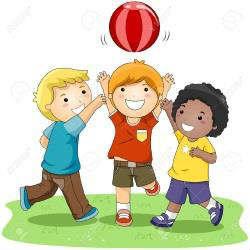TOOLS AND RESOURCES FOR SOCIAL COMPETENCES AND SKILLS
Module Description:
The objective of this module is to aid the public, specifically Special Needs Educators, teachers and any individual that is collaborating with children with Autism Spectrum Disorders (ASDs) and mild intellectual disability.
Within this section some social skills and competencies which are crucial especially in Special Education Needs children will be defined. Thus the module will cover different types of social skills, those competences that are indispensable for everyday functioning of SEN child, verbal and non-verbal skills. The module will show the difference between the relationship and functional approach.
Through this module learners will be provided with tips for teaching social skills to SEN children and some selected activities to improve some social skills of their charges. Finally, the section proceeds to the tools and resources that vastly support therapies and contribute to the vast improvement of interaction and social skills.

Source: Charis Therapy Centre
Introduction to social skills and competences
Relational approach
REACh is an approach developed by Brookfields School for pupils with ASD. It is based on the original work by Dr Rick Solomon called ‘Play and Language for Autistic Youngsters’ (P.L.A.Y.) and ‘Developmental Individual Difference Relationship Approach’ (DIR Floortime) by Dr Stanley Greenspan and Serena Wieder in the 1990’s.

The REACh approach is about first engaging with the child and then, through following their intent, developing their play. The introduction of appropriate language and imagination leads to the development of simple and subsequently, more complex relationships.
The approach is child centred and starts with careful observation and assessment where time is taken to share space with the child engaging them at their level. From this starting point we are able to build on their natural interests and starting to turn their play into more structured games and learning experiences.
One of the aims of REACh is to develop pupils emotional independence and self regulatory behaviours. This is achieved by attaching feeling and emotion (affect) to activities. Instead of counting bricks as they are put on a tower say, “Make me taller!” or “I need more bricks!” “I’m taller than you”, etc.
How do we do it?
- Observe, assess and record
- Take time
- Start from the child
- Add affect
- Develop emotion and feeling
- Form positive and supportive relationships
- Provide a rich communicative environment
- Offer excitement, anticipation, challenge and fun

Examples of skills that can be improved by REACh
- Problem solving
- Creative thinking
- Attention
- Shared attention
- Joint reference
- Concept development
- Symbolic play
- Emotional stability
- Emotional regulation
- Sense of self
- Sense of others
- Acceptance of others
- Ability to share space
- Ability to follow others intent
- Imitation skills
- Language development
- Purposeful action
- Initiation
- Motor planning
- Sequential learning
- Verbal processing
- Internalisation of experiences
- Generalisation of experiences
Through engagement and the subsequent development of a relationship within which the child is a confident participant, learning begins.
REACh supports the development of a range of skills which encourages the child to be a motivated and engaging learner. Pupils become eager to explore new experiences and to have the capacity to interpret them and make them relevant.
Additional resources
Figure 38. Video Relationship Development Intervention. Source: Howcast
Link: https://www.youtube.com/watch?v=WLXoi-olJFs
Click on this 2-minute video to learn more about RDI!